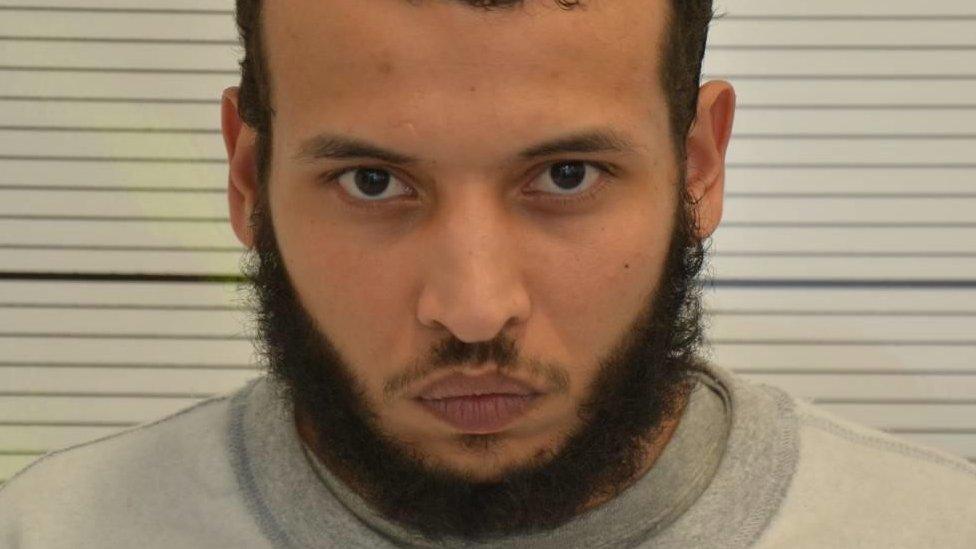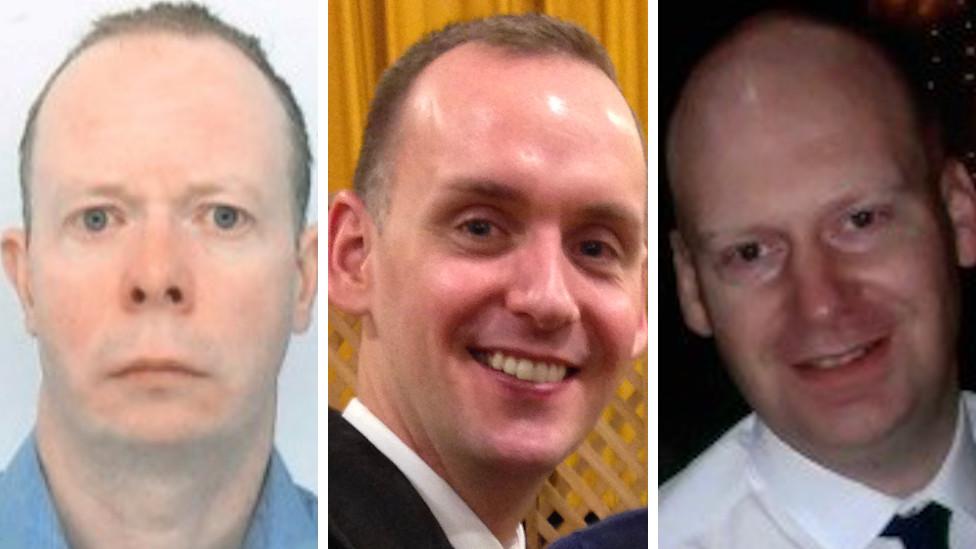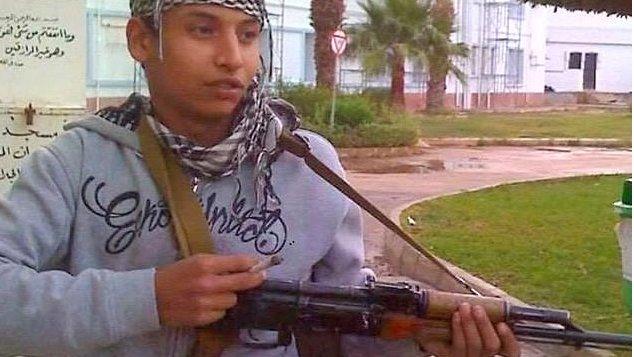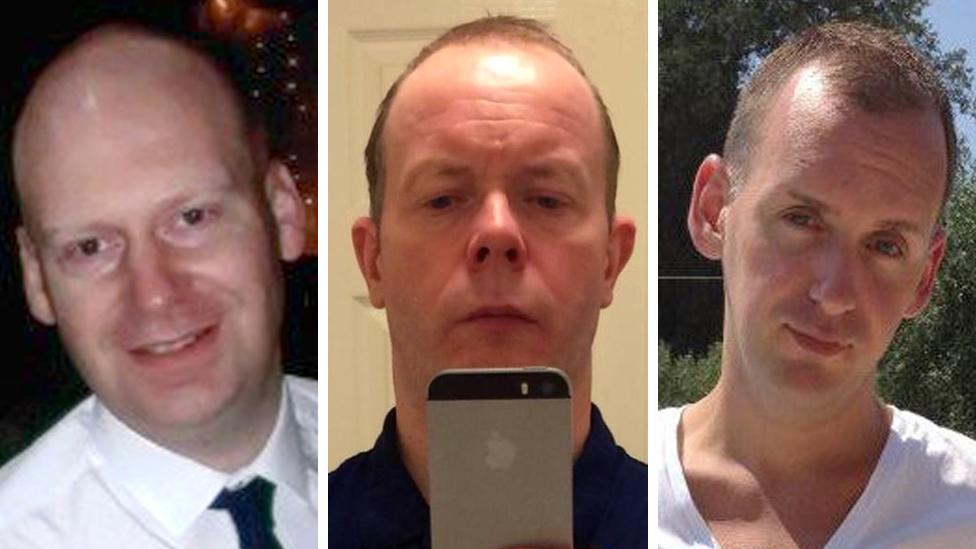Reading stabbings: Father demands answers on Saadallah freedom
- Published
Gary Furlong described his son as "an amazing, kind boy"
The father of one of three men murdered in a park terror attack has called on the home secretary to "tell us why" the killer was deemed safe to be free.
Gary Furlong, whose son James, 36, was killed in Reading's Forbury Gardens attack in June, said it was "beyond" him why Khairi Saadallah was considered "not a danger to the public".
Saadallah was jailed for the rest of his life over the murders.
The Home Office has not yet responded to a BBC request for comment.
At the time of the attack Home Secretary Priti Patel said: "We must learn the lessons from what has happened... to prevent anything like this from happening again."
During his trial, London's Old Bailey heard Saadallah "executed" James Furlong, David Wails, 49, and Joe Ritchie-Bennett, 39, as an "act of religious jihad" on the afternoon of 20 June.
He was jailed on Monday having previously admitted the three murders and the attempted murders of three other men.

Khairi Saadallah admitted three counts of murder and three of attempted murder
The Ministry of Justice said a Serious Further Offence (SFO) review had been completed into how Saadallah was managed by the National Probation Service.
The victims' families would be offered a meeting to discuss the findings of the review, it added.
It comes after the killer had been subject to licence conditions at the time of the attack.
The court previously heard on the 18 June, two days before the attack, Saadallah's probation officer had emailed his mental health team as he had been talking about "magic".
Saadallah also contacted the mental health crisis team himself, but he did not not open the door when they visited on 19 June.
The court heard Saadallah, who arrived in Britain from Libya in 2012, had previously been involved with militias who had been part of the uprising against Muammar Gaddafi, and was pictured handling weapons, including firearms.
Since seeking asylum in Britain, he had been repeatedly arrested and convicted of various offences, including theft and assault, between 2013 and 2020.
Analysis of Saadallah's phone revealed an interest in extremist material and the court heard while at HMP Bullingdon in 2017, he was seen to associate with radical preacher Omar Brookes, who has connections with banned terrorist organisation Al-Muhajiroun.
Speaking after the sentencing, Gary Furlong, from Liverpool, said Ms Patel needed to "tell us why this guy wasn't put into some form of detention centre before they could deport him".
"He was not safe to be released back on the streets," he added.
Saadallah, 26, had been told just before his release from prison that the Home Office wanted to deport him, but it was not legally possible due to the situation in Libya.
In law, what are known as the Hardial Singh principles place certain limits on the government's power to detain people ahead of deportation.
The Prime Minister's spokesman said the government "always tries to remove foreign national offenders where possible".
He was released from custody on 5 June, and proceeded to research the location for his attack online and carry out reconnaissance in the park.

(L-R) David Wails, Joe Ritchie-Bennett and James Furlong were pronounced dead at the scene
Following concerns from his brother, police visited the killer on 19 June, but he told officers he was "alright" while he stood near to a knife he bought from a supermarket.
Saadallah's brother, Aiman, said he had asked for police to detain him under the Mental Health Act, and added "lives would have been saved" if more had been done.
Thames Valley Police has been contacted for comment.
Reading Refugee Support Group's (RRSG) also said it had raised concerns about his potential for radicalisation over three years and the possibility of a "London Bridge" scenario.
In a statement, it said Saadallah had a "known, significant mental health problem".
"This in no way excuses what he did. He murdered three innocent people. But there must be accountability on the part of services that should have supported him," it said.
But passing sentence Mr Justice Sweeney said it was "clear that the defendant did not, and does not, have any major mental illness".
Gary Furlong said: "Given the volume of crimes he's committed and the information that they had on him, for an assessment to be done the night before to say that he's not a danger to the public - it is beyond me.
"How was he ever allowed to stay in this country? How was he allowed in, in the first place?"
History teacher James Furlong and pharmaceutical manager Mr Ritchie-Bennett each died from a single stab wound to the neck, while scientist Mr Wails was stabbed once in the back.
Despite treatment from paramedics and doctors, all three friends, who were members of the LGBT community, died at the scene.
Gary Furlong described his son as "an amazing, kind boy" who was loved by family, friends and students.
Related topics
- Published11 January 2021

- Published11 January 2021
